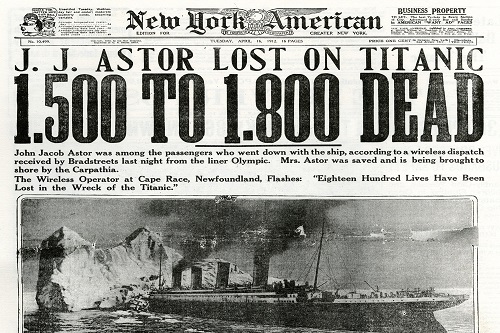Over the course of the summer, we have been looking at how to perform high quality, academic research in all of the major disciplines IU East teaches. While we started with general techniques usable in any research, that’s only the tip of the iceberg. Each area of study has its own quirks and special types of knowledge, and we want you to be good at whatever type of scholarship you choose to major in. This week, we’ll dig into the study of history.
History is an area of scholarship with a broad scope – you might be researching something that happened five years ago, or five thousand. Few other subjects have as wide of potential range. Fortunately, there are a lot of great places to look. For research articles, there are general databases like JSTOR or Modern World History Online, or period-specific ones that run the gamut with subjects like America History and Life, Ancient and Medieval History Online, Black Thought and Culture, Early Encounters in North America, Eighteenth Century Collections Online, Iraq, 1914-1974: The Middle East Online, Slavery and Anti-Slavery: A Transnational Archive, and numerous ebooks, as well. All of our history-related databases can be found here.
So, if we had a question like “How were prisoners of war treated in the American Revolution?” First, we’d pick a general database or an American history one like America History and Life. Then, we would put together a search like this:
As you can see, we are looking for three different concepts, and have included synonyms for each one, in case if the author uses an unexpected term. The syntax we used is described in more detail in the general techniques. It’s a little more complicated, but starting your search like this pays off in a big way. Just typing “american revolution prisoners of war” and hoping for the best will turn up a few things, but not much – we get a lot better results with our search words.
But there are plenty of other, more esoteric history sources, as well. And the study of history has many special demands
PRIMARY SOURCES
Primary sources are things that were written directly by a participant, rather than information that comes second-hand from interviewing or study. They are crucial for understanding people in a distant and unfamiliar time period, because good scholars don’t depend on what others say about a culture – they look at the primary evidence themselves. They can include letters, diaries, personal notes, oral histories, and more, and depending on the time period you are studying, there may be many of them, or very few. Like with research databases, some repositories for primary sources are general, and some focus on one issue or time period. But we have a lot of them to choose from – databases like African-American History Online, American Civil War: Letters and Diaries, American Indian History Online, American Women’s History Online, British and Irish Women’s Letters and Diaries, Modern World History Online, Oral History Online, North American Immigrant Letters & Diaries, and Women and Social Movements in the United States, 1600-2000 are all examples of databases partially or completely dedicated to primary sources.
HISTORICAL NEWS
Along with primary sources, historical newspapers represent an irreplaceable window to the thoughts and feelings of people in a given era of time. Unlike some other types of primary sources, they have an immediacy to them, because they were written as events occurred rather than after a long period of reflection. Seeing how people’s understanding of an event changed over time can be exceptionally illuminating. Databases available for historical newspapers include 17th and 18th Century Burney Collection Newspapers, 19th Century British Library Newspapers, 19th Century U.S. Newspapers, British Newspapers 1600-1900, British Periodicals 1 & 2, Eighteenth Century Collections Online, Historical Newspapers: New York Times, Illustrated London News Historical Archive-1842-2003, Picture Post Historical Archive, and PIO – Periodicals Index Online. While we have a few other large newspaper databases, like Newspaper Source and News and Newspapers, those two are more focused on current newspapers, and less on historical ones.
DOCUMENTARIES
Sometimes, videos and documentaries are helpful for familiarizing yourself with a topic, especially if there is a strong visual or kinesthetic component involved in understanding your research subject (for example, if you are studying the use of dance in a given culture, a video will be much more useful than an article). We have several databases dedicated to films on history topics, including World History in Video, American History in Video, and VAST. They include documentaries, news programs, interviews, and more. Many have full, interactive transcripts that make it easy to follow along or skip ahead to a section of interest to you. You can search by keyword, type, or historical event.
With so many history tools at your disposal, you’ll be able to do better research in a fraction of the time. But if you have any questions, please contact us at iueref@iue.edu!



